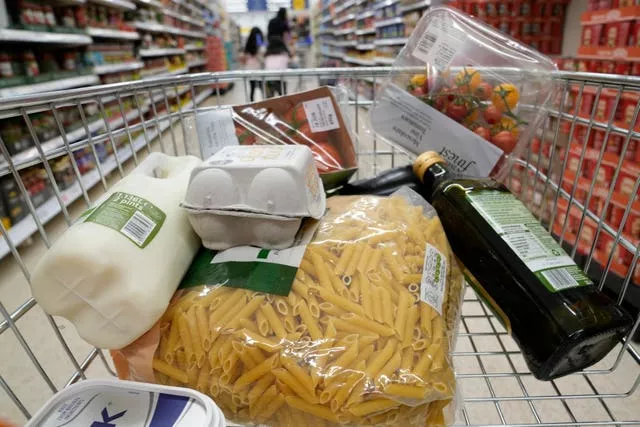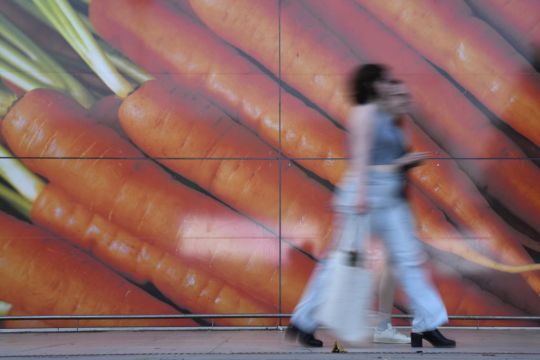A consumer group is calling for a “pasta strike” in Italy as the price of the staple soars by more than twice the rate of inflation.
The Assoutenti advocacy group is urging a week-long national pasta strike starting on June 22 after the government in Rome held a crisis meeting last month and decided not to intervene on prices.
Furio Truzzi, president of Assoutenti, said: “The macaroni strike is to see if keeping pasta on the shelves will bring down the prices, in the great Anglo-Saxon tradition of boycotting goods.
“The price of pasta is absolutely out of proportion with production costs.”

Grocery prices have risen more sharply in Europe than in other advanced economies – from the US to Japan – driven by higher energy and labour costs and the impact of Russia’s war in Ukraine.
That is even though costs for food commodities have fallen for months from record highs, including wheat for the flour used to make pasta.
Shops and suppliers have been accused of profit-padding “greedflation”, but economists say retail profits have been stable and the problem comes down to the higher cost to produce food.
Feeling the pressure, some governments in Europe have capped prices on staples or pushed for agreements with grocery stores to bring down costs – something that is popular with the public but can actually make food prices worse.
The French government reached a three-month agreement with supermarket chains for them to cut prices on hundreds of staples and other foods, which is expected to be extended through the summer. The UK – where food inflation has reached 45-year highs – is discussing a similar move.

Countries like Hungary, with the highest food inflation in the European Union, and Croatia have mandated price controls for items like cooking oil, some pork cuts, wheat flour and milk.
The Italian government says it will strengthen price monitoring by working more closely with the country’s 20 regions, but will not impose such limits.
Spain has avoided price controls but abolished all value-added tax on essential products and halved tax on cooking oil and pasta to 5%.
The measures come as food banks are seeing soaring demand in some countries.
“Things are not getting better, they are getting worse for people,” said Helen Barnard of the UK’s Trussell Trust, a charity that operates more than half of the food banks.
Prices for food and non-alcoholic drinks have actually fallen in Europe, from 17.5% in the 20-country euro area in March to a still-painful 15% in April.

It comes as energy prices – key to growing and transporting what we eat — have dropped from record highs last year. But economists say it will be many months before prices in shops settle back down.
In comparison, US food prices rose 7.7% in April from a year earlier, 8.2% in Japan and 9.1% in Canada. They hit 19% in the UK.
The numbers play into expectations that the European Central Bank will raise interest rates again this week to counter inflation, while the US Federal Reserve is expected to skip a hike.
In Europe, turning to price controls plays to voters, who get constant reminders of the inflation every time they hit the checkout counter, said Neil Shearing, group chief economist for Capital Economics.
But he said such changes should be reserved for instances of supply shocks, like war.
Such controls could actually make food inflation worse by increasing demand from shoppers but discouraging new supply, he said.
While pasta remains one of the most affordable items in many grocery baskets, the symbolism hits the Italian psyche hard and comes as families are absorbing higher prices across the board, from sugar to rice, olive oil and potatoes.

Italian families of four are spending an average of 915 euro (£781) more a year on groceries, an increase of nearly 12%, for a total of 7,690 euro (£6,800) a year, according to Assoutenti.
A full one-third of Italians have reduced grocery store spending, according to SWG pollsters, and nearly half are shopping at discount stores.
But even discounts are not what they used to be, and it is toughest for pensioners.
Inflation is also putting little indulgences out of reach for many, creating a new divide between the haves and have-nots.
The recent opening of a Sacher Cafe in Trieste, an Italian city whose Austro-Hungarian roots are evident in its stately architecture, led the mayor to a much-ridiculed response recalling for many an out-of-touch remark attributed to Marie Antoinette.
Asked about complaints that a slice of the famed Viennese chocolate cake was too pricey at nearly 10 euro (£8.50), Mayor Roberto Dipiazza responded, “If you have money, go. If you don’t, watch.”







